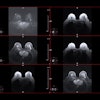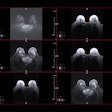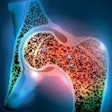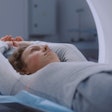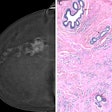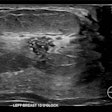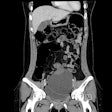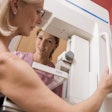CHICAGO -- Many women welcome the use of AI for breast cancer screening, according to research presented on 1 December at RSNA 2024.
In her talk, Dr. Ottavia Battaglia, a radiology resident at the Istituto Europeo di Oncologia (IEO) in Milan, Italy, discussed her team’s findings showing that nearly nine out of 10 women are optimistic about the technology. However, most women in the study also believed that radiologists should still be involved in the screening process and that AI should be limited to an assistant role.
“Our findings suggest that social attitudes to the use of AI to support diagnosis are positive, but women still want human involvement,” Battaglia said. "Specifically, women want to be fully informed about the use of AI in healthcare and they want to retain human interaction in the diagnostic process."
While researchers continue to debate AI’s potential in radiology, including breast imaging, they also continue to gather thoughts from patients on how the technology should be used and whether it’s appropriate at all.
The preliminary results shared at RSNA 2024 are quite intriguing, principal investigator Dr. Filippo Pesapane, PhD, told AuntMinnieEurope.com. "One aspect we are analyzing is the relationship between education and socioeconomic status and attitudes toward AI in clinical settings. Interestingly, women with higher levels of education and socioeconomic backgrounds seem to express more doubts about the use of AI than those with lower educational attainment."
This aligns with the well-documented Dunning-Kruger effect in psychology, where individuals with limited knowledge in a specific area may overestimate their understanding or competence, added Pesapane, who is a radiologist at IEO and a member of the AuntMinnieEurope.com editorial advisory board.
 Dr. Ottavia Battaglia a radiology resident at the Istituto Europeo di Oncologia (IEO) in Milan, Italy, discussed her team's findings at RSNA 2024, showing that the majority of women are optimistic about AI's use in breast cancer screening.
Dr. Ottavia Battaglia a radiology resident at the Istituto Europeo di Oncologia (IEO) in Milan, Italy, discussed her team's findings at RSNA 2024, showing that the majority of women are optimistic about AI's use in breast cancer screening.
Previous research suggests that people are optimistic about AI in imaging. However, this is not a one-size-fits-all group thought. Reports suggest that people with higher levels of education are more optimistic about AI in medicine than others and that most people still want the human element actively involved.
Battaglia and colleagues conducted a prospective survey evaluating knowledge and perceptions about AI among the nonscientific community, focusing on breast cancer screening. The survey consisted of 11 multiple-choice questions that evaluated statistical associations.
The team has so far analyzed 800 questionnaires and noted that 51% of the respondents reported having knowledge about AI. Of those with AI knowledge, 88% had positive opinions about the technology’s involvement in medicine.
Respondents with a higher level of education demonstrated better opinions about AI’s use in medicine (odds ratio [OR] = 4.69).
Also, 94% of respondents reported that radiologists should always produce their own mammography reports while 77% said that AI should be used as a second reader. And 52% of the respondents expressed that both software developers and radiologists should be held accountable for AI errors.
Finally, non-Italian respondents showed a deep awareness of AI more often than Italian respondents (OR = 1.91).
Battaglia said that understanding demands and concerns about AI among patient groups could make way for better strategies in improving knowledge and acceptance of AI applications in breast cancer screening among the general population. She called for future studies to focus on this aspect.
“The results will be essential for developing a successful and patient-centered medical AI innovation pathway,” Battaglia said.
The study represents a continuation of work the group initiated three years ago (see BJR https://academic.oup.com/bjr/article/96/1141/20220569/7663655).
For full 2024 RSNA coverage, visit our RADCast.




